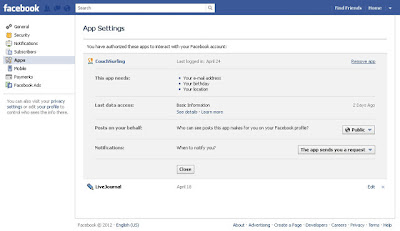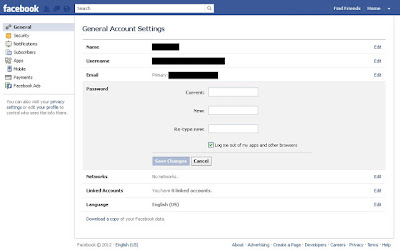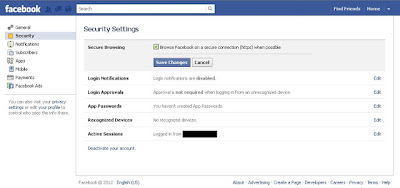Facebook is filled with spammy posts and fake applications. Facebook malware you can get on Facebook. Although it may seem impossible, there are ways that your Facebook account can get some of this malicious software which will cause many problems for your account and if you don’t do anything about it, it might get shut down This tutorial encompasses the description of the most ordinary patterns of malware propagation on Facebook, and provides tips on how to eliminate the risk to delight in social networking to the fullest.
Criminals are getting really excellent at tricking you into clicking links to fake Facebook apps like ones that promise to show you exactly who is viewing your profile, which will never happen by the way.
And then, what happens is you click that link, and depending on what kind of scam it is, you can get a computer virus or spyware, your passwords can get stolen, hackers can force money from you, or you can turn into one of the annoying friends who annoyingly post spam on other people’s walls. Don’t be that person.
Usually people get Facebook malware because they fell for a spammy wall post message or group. I always know it’s spam when I get sent a weird link from a name who I never talked to. So if you are the least bit suspicious about a link, don’t click it. Hover over that post with your mouse and click the X, in that menu click ‘Report post or spam’, and Facebook will take it from there.
You can also do that if a name posts spam as their status. Sometimes it will look like a normal status that says something like: “Did you hear Facebook is finally getting a ‘Dislike’ button?”, and then there will be a small link at the end of it. Again, don’t click it, especially if it sounds too excellent to be right.
A lot of spammers will post shortened links using services like bitly, so that you cannot see the URL until you click it. So if you ever see a shortened URL, go to services like LongURL, paste it there and you will get a safe preview of the link. And then, if you find out that it is spam, hover over the post, click the X and mark it as spam.
App Settings page where you can delete Facebook applications
A further way you can get into distress is if you install a malicious app. Sometimes you don’t find out until it’s too late and the app has used your account to spam other people or add weird equipment to your profile. If you reckon you’ve installed a terrible app, head to Facebook, click the arrow in the top right-hand corner and select ‘Account Settings’ from the drop-down menu. Then in the left menu choose ‘Apps’ and click ‘Edit’ next to apps you use. Now you are finally at the page where you can delete apps. Just click ‘Remove app’next to any app you want to delete. And even as you are here, delete apps you don’t use because they probably have permission to access your personal information.
Some apps require you to download software that can cover your account with ads, make your pages load at a snail’s pace and compromise your security. This is called adware. To see a full list of known adware programs, visit:www.facebook.com/help/adware
Remember Facebook ads will never appear as banners in the focal point, top or left column on Facebook. If you are seeing ads in these locations or ads that flash or play sound automatically, you probably have adware.
If you have downloaded one of these programs, you can clean up your account by removing any suspicious plug-ins on your web browser. Here is how:
- To disable browser add-ons in Mozilla Firefox click Tools Add-ons Extensions.
- If you use Safari, click Safari Preferences Extensions.
- With Google Chrome, click Dialogue box Extensions.
- Finally, if you use Internet Explorer , click Tools Manage Add-Ons Toolbars and Extensions.
Facebook page to exchange password
Now, if adware is not a problem any longer but you still observe some other weird activity and you reckon you might have malware and your Facebook account has been hacked, there are a few other equipment you can do. First, exchange your password straight away. You can do this by going to ‘Account Settings’, then under the ‘General’ menu item click ‘Edit’ next to ‘Password’. Make sure the new password you are entering is different than all your other passwords, because if a hacker steals your Facebook password and it facility for your email account, he can use it to get into that too. Go to www.passwordmeter.com to see if the passwords you are choosing are strong enough. A excellent secure password will have upper-case and lower-case letters, at least one number and a special character like a question mark.
Enable Secure Browsing for additional protection
Even as you are in the ‘Account Settings’, choose ‘Security’ menu item on the left and click ‘Edit’ next to ‘Secure Browsing’. Enable ‘Browse Facebook on a secure tie (https) when possible’ option so that third parties cannot hijack your Facebook session. Also, in order get told if a name logs into your account from a location that Facebook does not recognize, hit ‘Edit’ next to Login Notifications and enable the corresponding options. This is recommended to do for you to know if a name is logging into your account without you knowing that.
Changing your password only fixes one type of hack. Other kinds will install malware like spyware or viruses on your computer. Whether or not you reckon you have malware, you need to make sure you have antivirus software. AVG or Avira are free and highly recommended.
Also, make sure you are updating your operating system. Microsoft released security updates that fix vulnerabilities in our software. For Windows, go to Start then head to Programs and Windows Update. On a Mac go to the Apple menu and select Software Update.
Now that your software is up-to-date, you've indifferent terrible apps and fixed your Facebook account and privacy settings, you are already a lot safer. Do everybody a favor and question your friends to do the same thing.





No comments:
Post a Comment